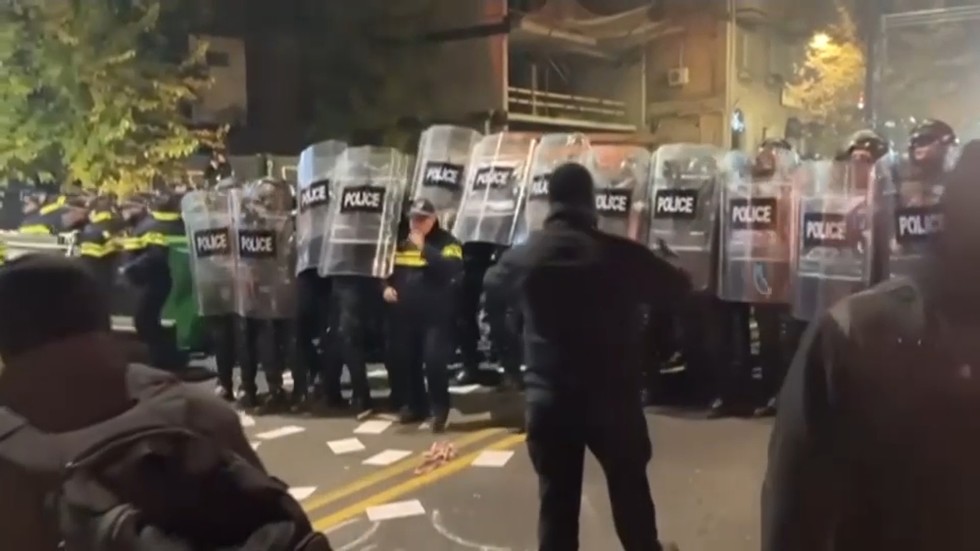Following last month’s contentious election in Georgia, the ruling party, Georgian Dream, faced vehement opposition from rival factions disputing the election results and alleging widespread ballot fraud. The party secured a parliamentary majority with approximately 54% of the vote on October 26, leaving four opposition parties with significantly lower percentages (no more than 11% each). As tensions escalated, police in Tbilisi dismantled a protest camp set up by opposition activists, who claimed the election was tainted by vote rigging and Russian meddling. Despite these accusations, no concrete evidence has been presented to support them. The President of Georgia, Salome Zourabichvili, has joined the chorus of dissent but faced pushback from the electoral body, which demanded substantiation for her allegations.
The Central Electoral Commission officially confirmed the election results, prompting criticism from opposition leaders and international watchdogs. They alleged that the electoral process was undermined by irregularities, leading to a reported surge of turnout and questionable voting practices. However, international observers from the Organization for Security and Cooperation in Europe (OSCE) characterized the elections as generally free, noting that voters had access to a diverse slate of candidates and could campaign without substantial restrictions. Contrastingly, Zourabichvili’s assertions about election integrity have been labeled as violent rhetoric by election officials, who seek an inquiry into her claims of misconduct.
The ferment in Tbilisi culminated in violent clashes between police and demonstrators, particularly outside prominent institutions such as the Ivane Javakhishvili Tbilisi State University. In response to demonstrators hurling stones, law enforcement utilized tear gas to disperse crowds, ultimately dismantling barricades and arresting several participants. These protests coincided with significant electoral announcements, reflecting widespread public dissatisfaction with the ruling party and a longing for greater accountability. Furthermore, there were harrowing incidents of defiance during the electoral commission’s ratification, including an opposition member throwing paint at the commission chief in an act of protest against perceived betrayal of the nation’s democratic ideals.
Criticism of the electoral process has not been limited to domestic opposition groups. The US State Department remarked on allegations of vote-buying and intimidation practices, foreshadowing potential repercussions should the Georgian government fail to demonstrate a commitment to its democratic principles and Euro-Atlantic alignment. European leaders, including President Emmanuel Macron and Chancellor Olaf Scholz, have issued demands for a thorough investigation into the opposition’s claims and cautioned against potential stagnation in Georgia’s EU accession aspirations due to legislative acts that contradict European values. They specifically referenced controversial laws passed earlier in the year that limited LGBTQ rights and introduced foreign agent registration.
The ruling party’s affability towards Russia has raised alarms both domestically and internationally, given ongoing tensions between the West and Moscow. Kremlin spokesperson Dmitry Peskov categorically denied any interference by Russia in the Georgian elections, portraying accusations of Russian meddling as an effort to distract from Western influence. This dichotomy reflects the broader geopolitical struggle in the region, where Georgia stands at a crossroads of competing interests, facing pressure from both Western allies and its historically significant neighbor, Russia.
In light of these events, President Zourabichvili’s intent to file a complaint with the Constitutional Court underscores the growing unease in Georgian politics. The unfolding situation presents a stark division between the ruling party and the opposition, heightened by external influences and the legislative decisions that many believe hinder Georgia’s democratic integrity. As protests continue and international scrutiny intensifies, the future of Georgia’s political landscape remains to be seen, fraught with challenges regarding electoral integrity, civil liberties, and the country’s place within the European frameworks it aspires to join.

